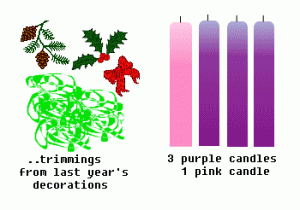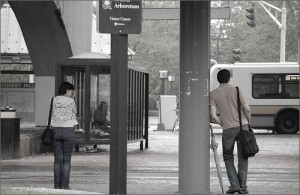 “Here am I, and the children the LORD has given me. We are signs and symbols in Israel from the LORD Almighty, who dwells on Mount Zion.”
“Here am I, and the children the LORD has given me. We are signs and symbols in Israel from the LORD Almighty, who dwells on Mount Zion.”
Isaiah 8:18
When we hear Isaiah was a prophet, we might think of a person hearing voices and preaching on a street corner. But for Isaiah, it was commitment he made for his family, that they would stand as representations of God’s message. How would Isaiah’s audience know what God was telling them? By looking at Isaiah, his family, and how they lived.
If Advent is about waiting, the question becomes, how do we wait well? The answer is, we turn our lives, and thereby lives of those closest to us, into previews of the kingdom of God. Our culture sometimes frowns on parents passing their faith onto their children. And when all they do is enforce a moralistic code (“we don’t do that in this family!”), maybe culture is right.
But what if our individual lives, and those we have the most affect on, were models of what humanity could be? What if, in our closest relationships, we were examples of speaking and acting in love, caring for the poor, and living as if all our possessions belonged to God? The world will know what Jesus was talking about, not by hearing a sermon or reading a book, but by countercultural way we lead our lives and our families.
Related Posts:
– Advent: What God Wants for Christmas
– Advent: Is God a Referee?
– The What and How of Advent










 Tweets
Tweets